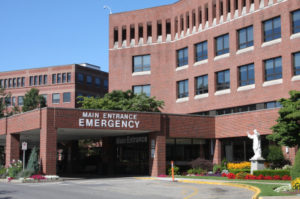PA Health Policy Update for July 21
The following is an update of selected state health policy developments in Pennsylvania from July 17 – 21. (Some of the language used below is taken directly from state documents.)
Medicaid Continuous Coverage Unwinding
The Department of Human Services (DHS) is maintaining an online dashboard with Medicaid continuous coverage unwinding data. The data on this dashboard tracks the renewal process by county and zip code. Additional updates and resources about the Medicaid eligibility renewal process may be found here.
DHS has published the following resources to help providers educate patients about Medicaid renewals and what to do if they are no longer eligible for Medicaid.
Governor Shapiro
The Governor’s Budget Office has issued a Budget Impasse FAQ that contains information relevant to commonwealth vendors, grantees, and other stakeholders.
Pennsylvania Executive Order 1996-1 requires all agencies under the jurisdiction of the governor to submit for semi-annual publication an agenda of regulations under development or consideration. These agendas are compiled to give the regulated community advance notice of regulatory activity. Learn more about what the agencies are contemplating and find contact information for seeking additional information from this Pennsylvania Bulletin notice.
General Assembly
The Center for Rural Pennsylvania will hold a public hearing Thursday, August 3 at 9:00am on rural hospital and healthcare sustainability to explore difficulties facing rural hospitals and health systems. The hearing will be held at the University of Pittsburgh at Bradford and will be livestreamed here. More information on the hearing and a tentative agenda can be found here.
Department of Human Services
- The Department of Human Services (DHS) has announced Pennsylvania will receive an estimated $42 million in federal funding from CMS through the Money Follows the Person (MFP) program to continue existing activities and support new initiatives focused on serving individuals in the community. Find additional information in this press release.
- DHS has issued Provider Quip Tip #263 notifying providers that an electronic submission process is available in the Promise Portal for Office of Medical Assistance fee-for-service (FFS) and Office of Long-Term Living (OLTL) 180-day exception requests and other claims requiring documentation.
- DHS has updated its calendar of mailing dates for Remittance Advices and corresponding electronic transfers and checks through August. Find the updated calendar here.
- The Executive Board approved a reorganization of DHS. Additional information and a revised organizational chart is available in this Pennsylvania Bulletin notice.
Department of Health
The Department of Health (DOH) has issued a Health Advisory (2023 – PAHAN – 708) alerting health care providers to have heightened clinical suspicion of Jamestown Canyon virus (JCV) infection in persons with clinically compatible symptoms (similar to West Nile and Powassan virus).
Department of Aging
The Department of Aging held its third regional town hall to seek input on Pennsylvania’s Master Plan for Older Adults, which will be a 10-year, state-led strategic plan designed to transform the infrastructure and coordination of services for older Pennsylvanians. Governor Shapiro’s executive order directing the department to develop the plan is available here.
Pennsylvania Health Care Cost Containment Council 
The Pennsylvania Health Care Cost Containment Council (PHC4) has released a new Cardiac Procedures Report. The report focuses on the performance of acute care hospitals for five types of cardiac procedures. Find the report and a press release issued by PHC4 here.
Stakeholder Events
DHS – Medical Assistance Consumer Subcommittee – July 26
The Consumer Subcommittee of the Medical Assistance Advisory Committee (MAAC) will meet on Wednesday, July 26 at 1:00 p.m. Click here to register to participate.
DOH – HIV Community Prevention Planning Committee – July 26
The Human Immunodeficiency Virus (HIV) Community Prevention Planning Committee will meet on Wednesday, July 26 and Thursday, July 27 from 9:00 a.m. to 4:30 p.m. Find additional information and details on how to participate in this Pennsylvania Bulletin notice.
DHS – Medical Assistance Advisory Committee – July 27
The MAAC will meet on Thursday, July 27 from 10:00 a.m. to 12:00 p.m. Click here to register to participate.
DOH – Newborn Screening and Follow-Up Technical Advisory Board – July 27
The Newborn Screening and Follow-Up Technical Advisory Board will hold a public meeting on Thursday, July 27 from 10:00 a.m. until 1:00 p.m. The meeting will be conducted in person. The agenda will include discussions about Board member terms; updates from the Bureau of Family Health; and updates from the Lysosomal Storage Disorders/X-ALD, Cystic Fibrosis, Hemoglobinopathy and Critical Congenital Heart Defects subcommittees. Find additional information and details on how to participate in this Pennsylvania Bulletin notice.






